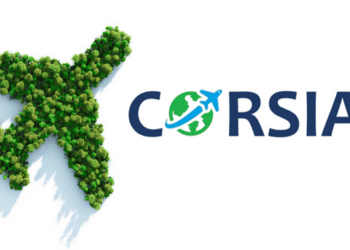Gaming companies, many of them publicly listed, are currently holding a substantial $45 billion in cash and cash equivalents, paving the way for potential consolidation in the $188 billion video games market, as reported by venture capital firm Konvoy. The information was shared exclusively with CNBC.
Prominent players such as Activision Blizzard, Electronic Arts, Singapore’s Sea, Japan’s Nintendo, Bandai Namco, South Korea’s Nexon, and China’s NetEase have collectively amassed $45.1 billion in cash and cash equivalents, based on the latest publicly available reports.
This significant financial reserve provides these companies with the potential to explore acquisition opportunities aimed at enhancing their intellectual property and product offerings.
In the evolving landscape of the gaming industry, companies are keen on engaging gamers for more extended periods. This includes the development of live-service games with ongoing content updates, the introduction of subscription packages offering free games and access to cloud gaming, which allows gaming via the cloud without the need for local downloads.
Linear games, including classics like backgammon, are making a comeback in this context because they have a sort of addictive property. These massive open-world options feel like an endless maze to explore that don’t really have a way out, whereas games that have simple rules are always on rails. Players know what the parameters are, and they don’t have to steep themselves in lore to feel immersed
Public gaming companies have generally seen favorable results in 2023. For instance, the VanEck Video Gaming and eSports ETF, tracking the MVIS Global Video Gaming & eSports Index, has gained 20% year-to-date, outpacing the S&P 500 index, which has seen a 12% increase.
In contrast, the Global X Video Games & Esports ETF, tracking a modified market-cap-weighted global index of gaming and esports companies, experienced a slight decrease of 0.4% since the beginning of 2023.
Big technology firms are also flush with cash, making them potential players in the gaming industry. Major tech giants like Amazon, Microsoft, Google, Apple, Meta, Netflix, Tencent, and Sony collectively hold a substantial $229.4 billion in cash, creating potential opportunities for further gaming deals.
Konvoy’s partner, Josh Chapman, believes that the recent Microsoft-Activision deal, where Microsoft acquired U.S. game publisher Activision Blizzard for $69 billion, is likely to stimulate further merger and acquisition activity, creating a new generation of gaming companies.
Microsoft’s focus on cloud gaming, which eliminates the need for traditional gaming consoles, is expected to generate new opportunities for emerging game developers, infrastructure companies, and gaming platforms.
While venture capital investment in the video game industry experienced a 64% year-over-year decline in the third quarter of 2023, Konvoy anticipates brighter prospects for gaming startups in the future, as the funding climate improves. Although gaming funding may have returned to a sustainable level, Konvoy expects a slight uptick in gaming venture capital funding as the industry grows at a similar rate to the pre-pandemic era.
Despite the challenges posed by macroeconomic conditions such as high inflation and rising interest rates, the video game industry’s player base continues to expand. A worldwide player base of 3.381 million exists today.
The gaming market remains substantial, with projected sales of $188 billion in 2023, indicating a modest 3% increase from the previous year. This growth is a slight acceleration from 2022, where gaming sales only rose by 2%, following a stellar 2021.
Konvoy’s long-term projections for the industry anticipate a compound annual growth rate of 9% in the next five years, with total sales reaching a remarkable $288 billion by 2028, highlighting the industry’s enduring growth potential.
This article was originally reported by venture capital firm Konvoy and was shared exclusively with ImpactWealth.Org.

















